Report on a worldwide survey on coronavirus
Three month ago, no one knew that SARS-CoV-2 existed. Now the virus has spread to almost every country, infecting at least 600,000 people whom we know about, and many more whom we do not. It has crashed economies and broken health-care systems, filled hospitals and emptied public spaces. It has separated people from their workplaces and their friends. It has disrupted modern society on a scale that most living people have never witnessed. A survey of 468 participants conducted by “ELIM” (Nur-Sultan, Kazakhstan) has revealed that the majority believe that the outbreak has already heavily impacted daily activities, for the first half of 2020.
About respondents
The majority of the respondents are male and young single adults between age 26-35.
1. Are you male or female?
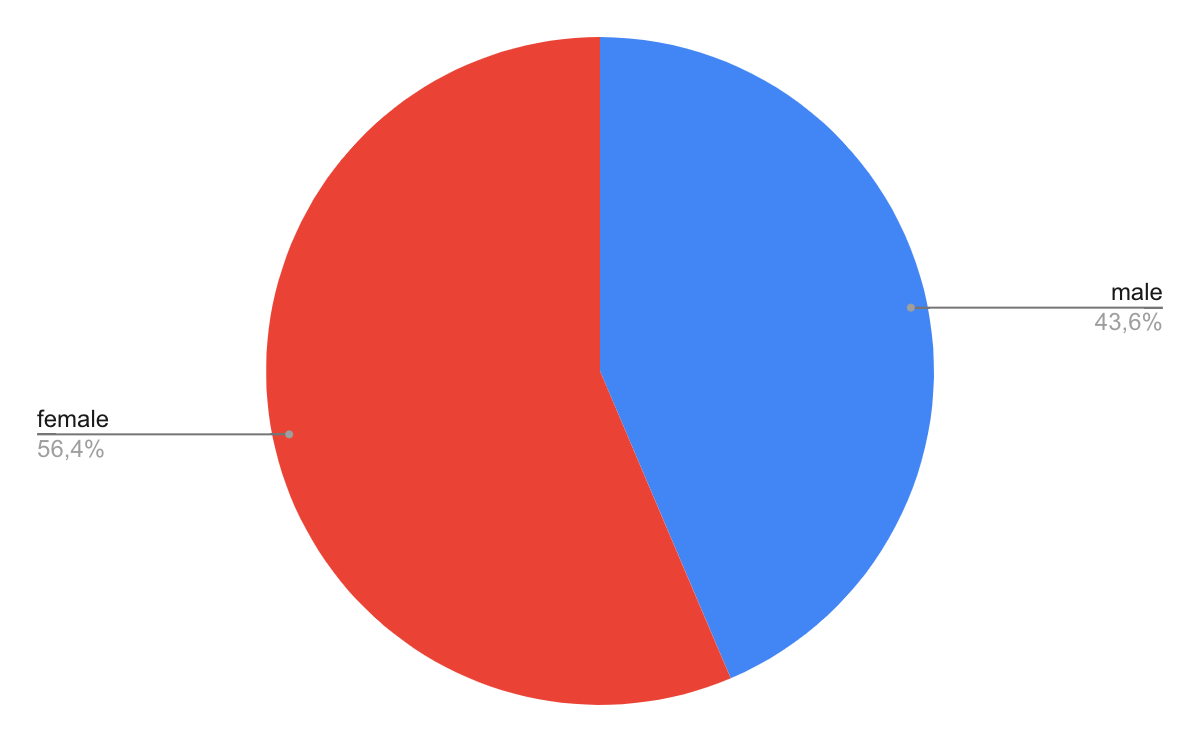
2. What is your age?
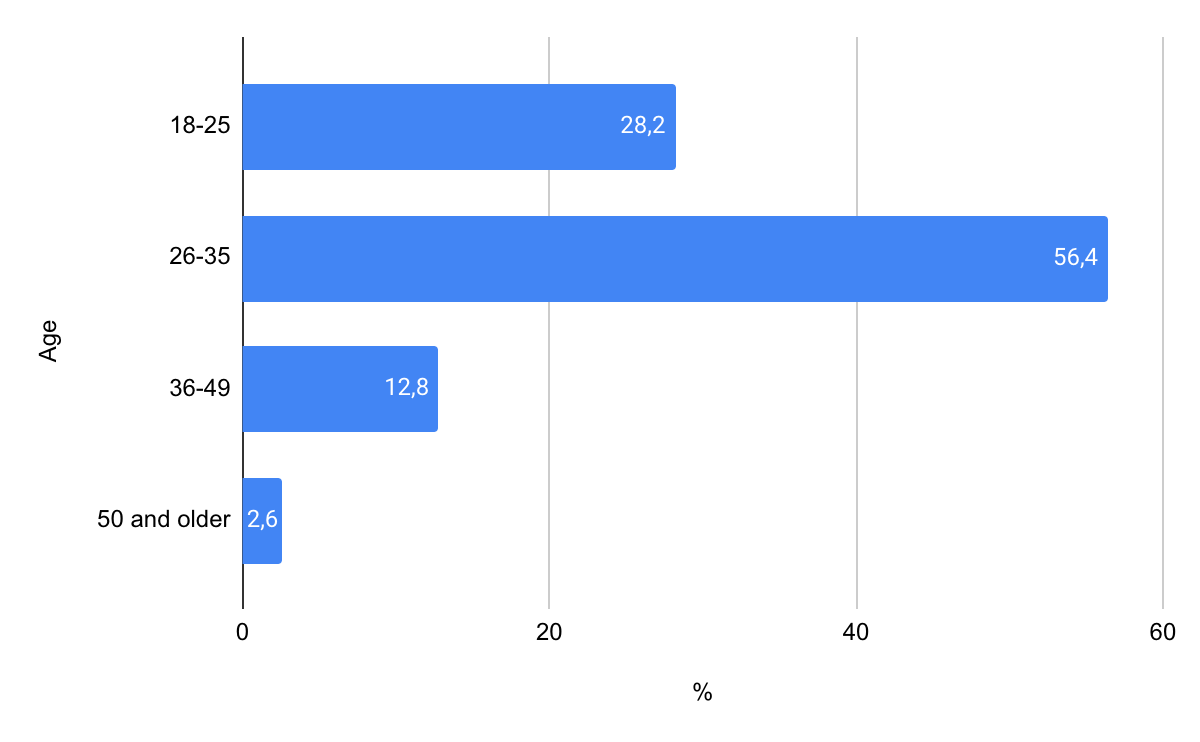
3. Martial status
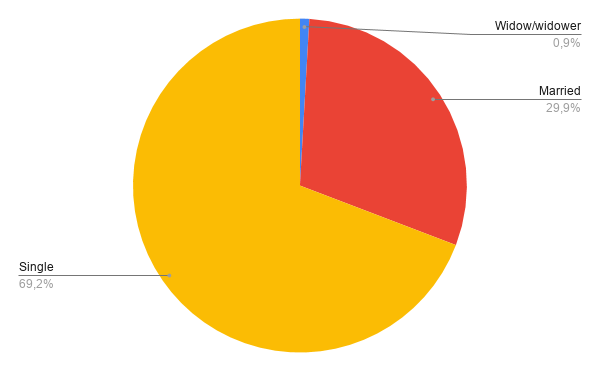
The absolute majority of the respondents happen to be students.
4. What area do you work in?
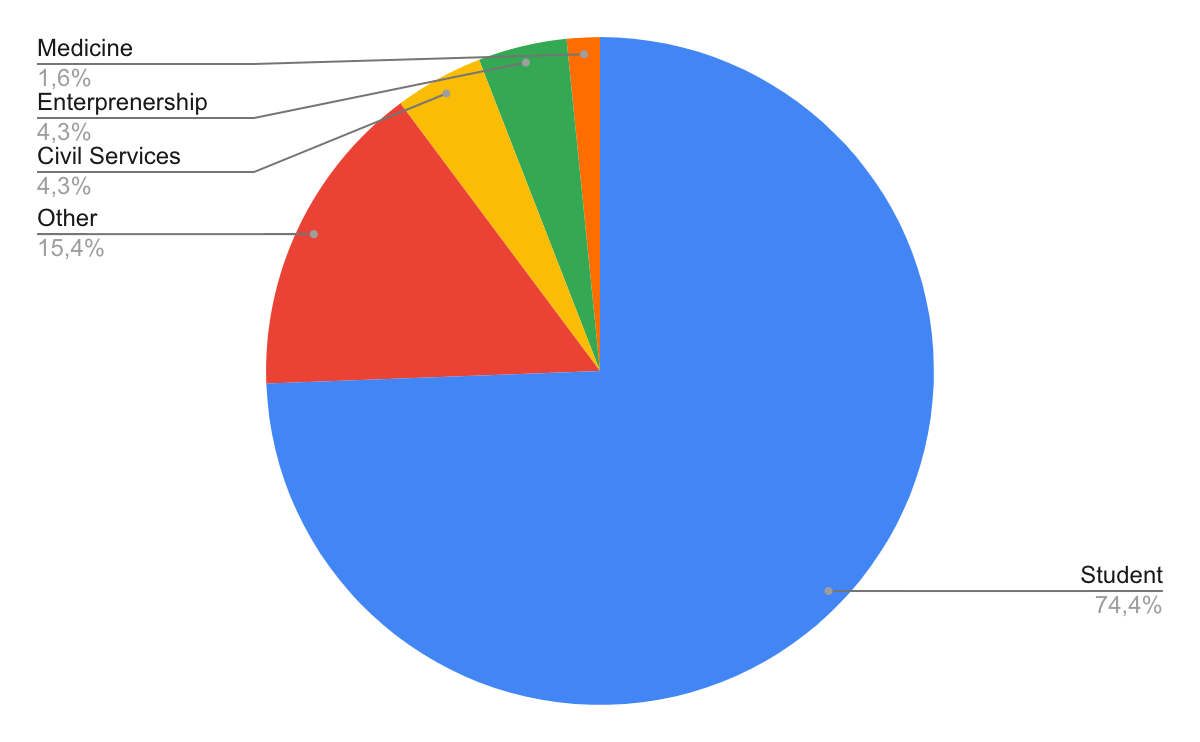
The survey scale is worldwide.
5. Where are you from (country)?
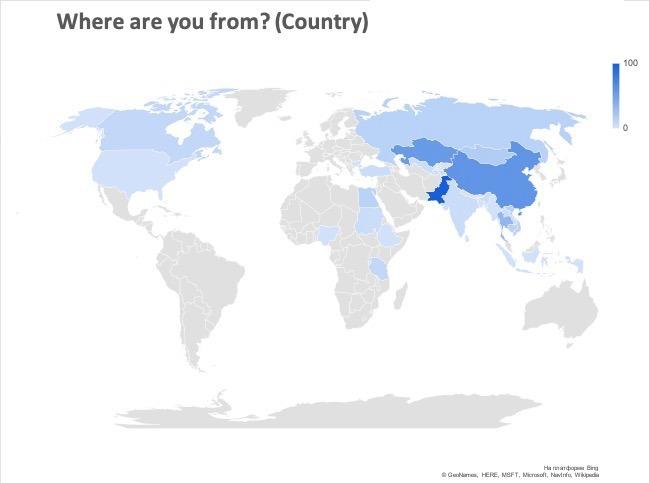
The absolute majority of the respondents approve taken actions towards reduction of the virus spreading understating the otherwise consequences.
Questions and answers
Your opinion on imposition of a state of emergency
6. Your opinion on imposition of a state of emergency
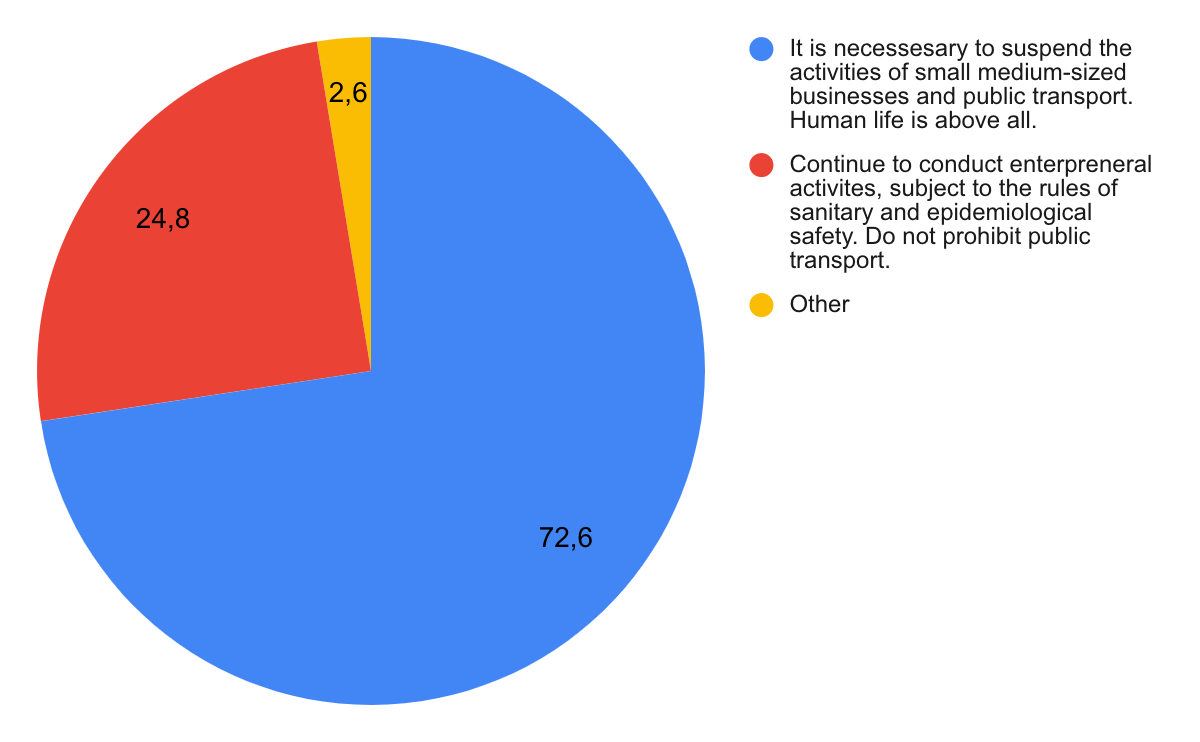
How effective is work at home?
Enterprises have been forced to take actions to help prevent the virus from spreading further – such as implementing remote working, shutting down production, and cancelling events – the consequences are already starting to be felt. The effectiveness of working remotely has been marked averagely effective by respondents.
7. How effective is work at home?
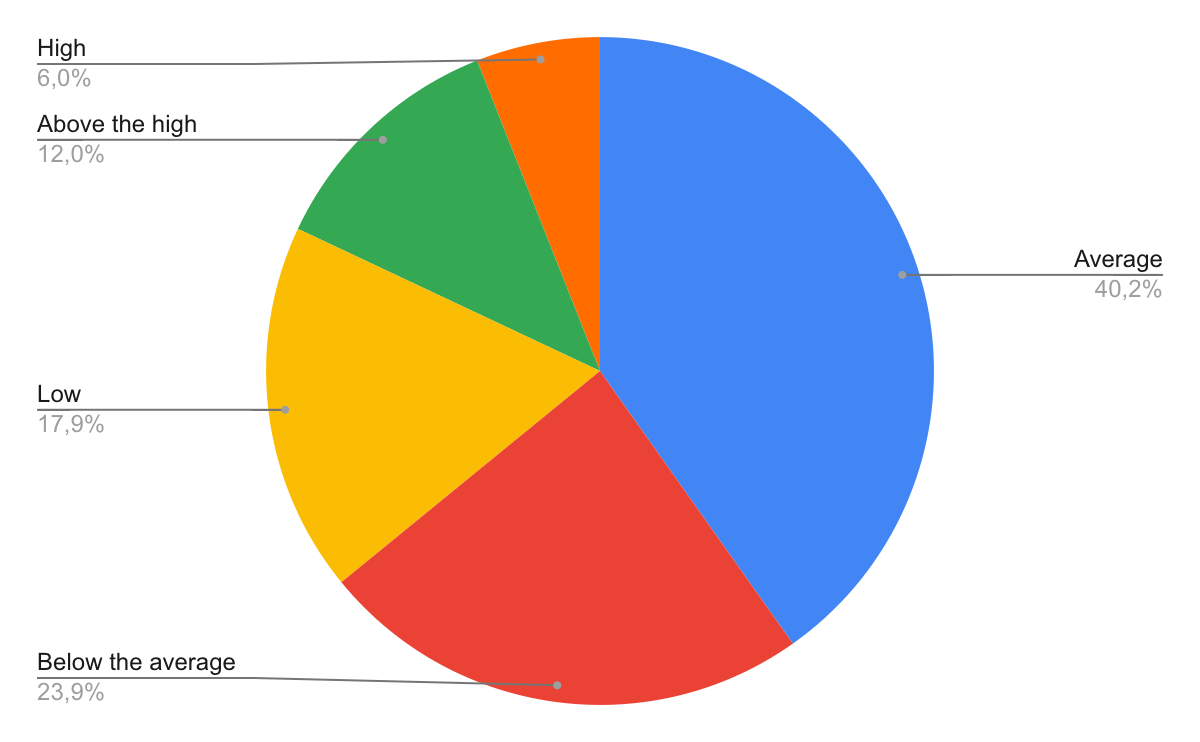
How has the coronavirus pandemic affected your business?
8. How has the coronavirus pandemic affected your business?

The country declared a state of emergency due to coronavirus. Your priority actions?
The outbreak of the novel coronavirus, or Covid-19, has caused panic across the world. However, the majority respondents stay calm over the current period of time and look forward to the outbreak end to continue their usual lifestyle, yet about half of them will not intend to attend public places after all as survey results showed.
9. The country declared a state of emergency due to coronavirus. Your priority actions?
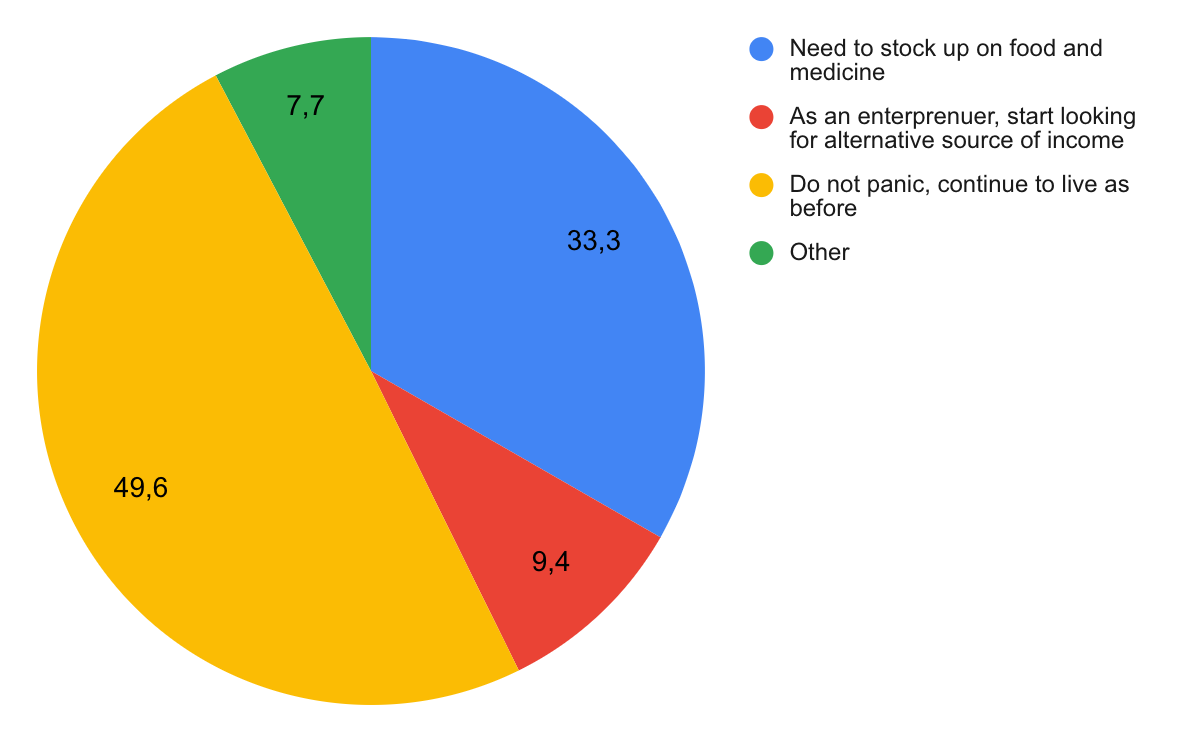
After 1-2 months, the epidemic of the coronavirus declined, the situation in the country stabilized. Restrictions on the visits to shopping centers, cinemas, exibitions removed. What will you do first?
10. After 1-2 months, the epidemic of the coronavirus declined, the situation in the country stabilized. Restrictions on the visits to shopping centers, cinemas, exibitions removed. What will you do first?
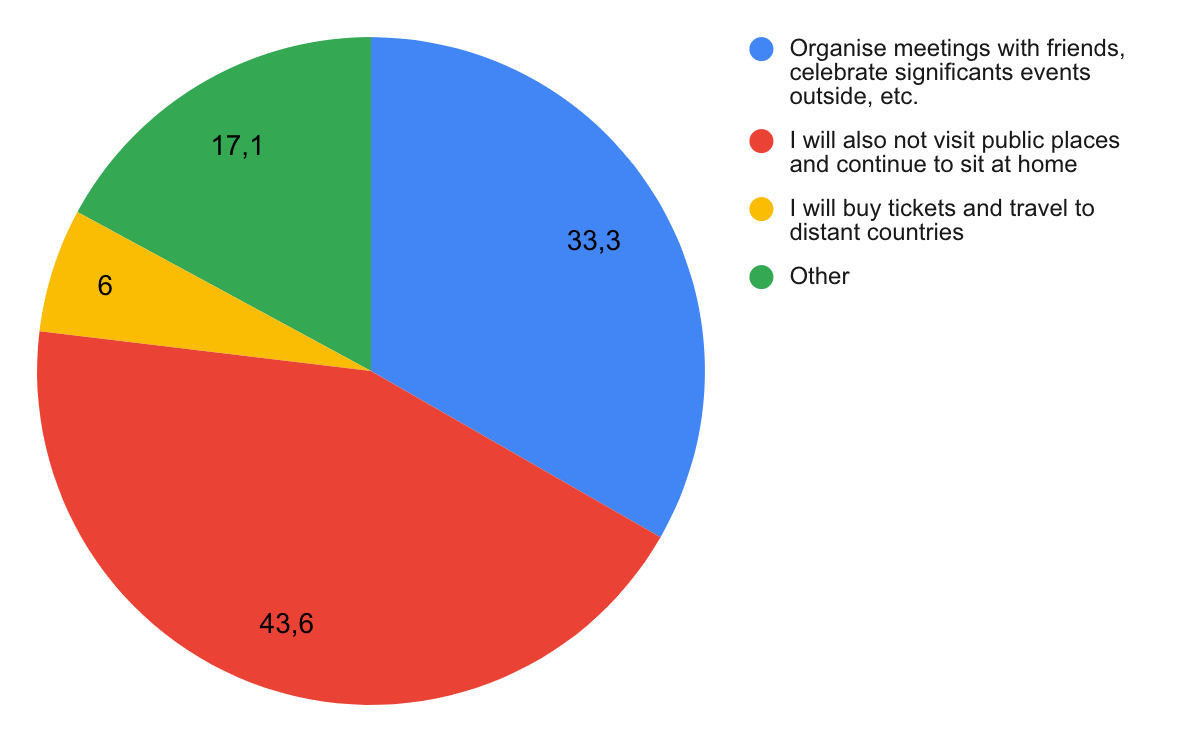
An elderly woman with heavy packages enters the bus with a limp. You are going to help her, but then she begins to sneeze and cough. Your actions?
The coronavirus outbreak has led to a shift in attitudes, with less tolerance of individualistic behavior and a greater tendency to recognize the contributions of others.
11. An elderly woman with heavy packages enters the bus with a limp. You are going to help her, but then she begins to sneeze and cough. Your actions?
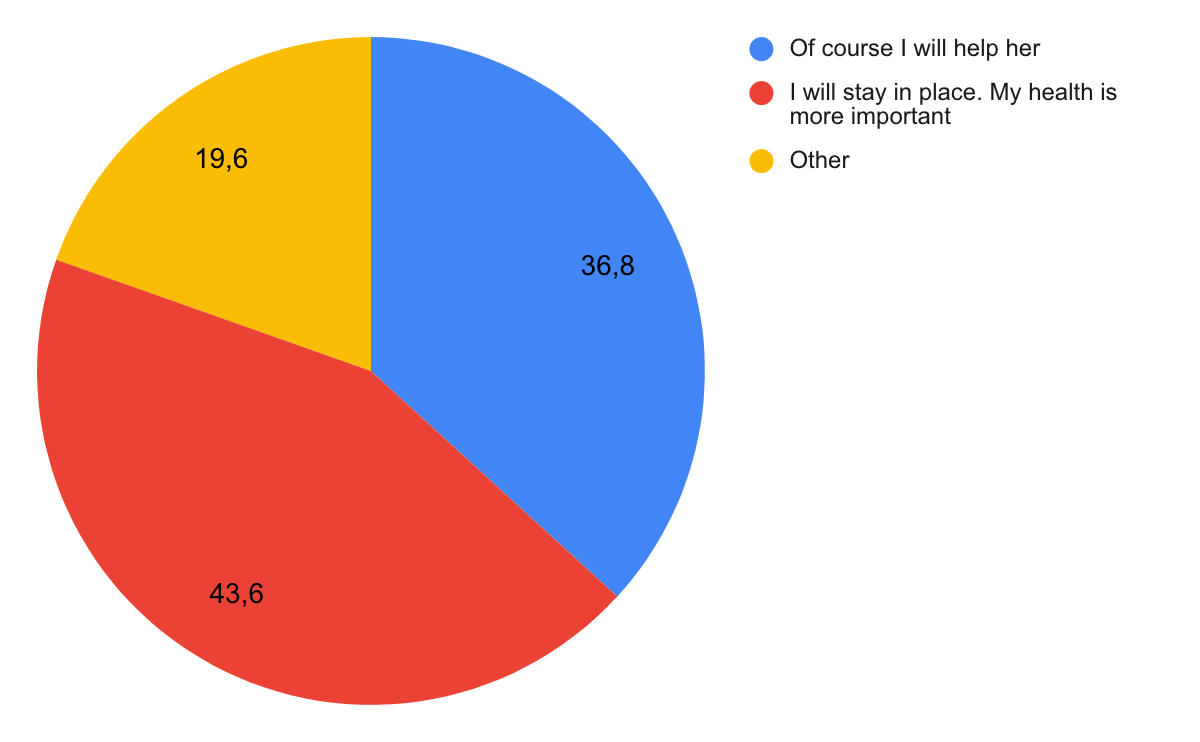
What do you do in a situation of rising prises to maintain your former lifestyle?
The coronavirus disease is also negatively affecting both the global and the Kazakhstani economy, slowing down the development of countries and even causing the currency devaluation with all the negative consequences this rises. According to the survey conducted during the epidemic, the majority of the participants admitted that they are ready to cut down the expenditures to maintain the former lifestyle before the virus outbreak.
12. What do you do in a situation of rising prises to maintain your former lifestyle?
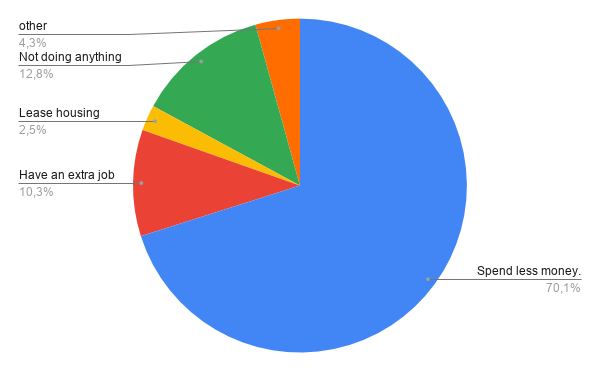
In your opinion, what is the effectivness of distant learning?
Universities and schools have switched to remote classes and are telling students to move out of dorms to prevent the spread of the coronavirus, which has been proved to be averagely effective by respondents.
13. In your opinion, what is the effectivness of distant learning?
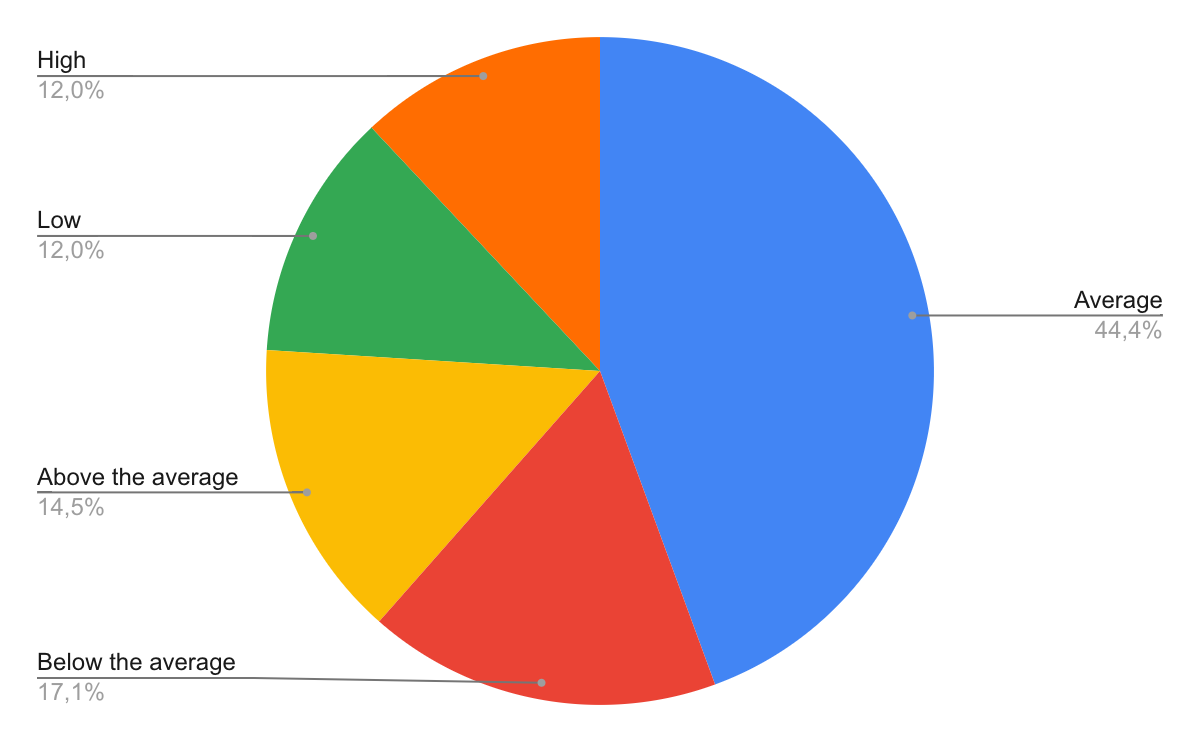
Conclusion
The coronavirus, or COVID-19, has caused devastating ripple effects and significant disruptions to industries worldwide. Small and medium sized enterprises have been heavily affected during this pandemic crisis, and will not likely to survive without governments’ interventions and financial support which is proving to be crucial to maintain healthy national economies. School on the other hand, should explore their online learning and alternative learning options as there is clearly sufficient interest and market potential for moving courses online. Persuading a country to voluntarily stay at home is not easy, but the importance of social distancing must be impressed upon a public who must also be reassured and informed, otherwise the situation might me catastrophic.
The world facing a huge obstacle now, which might prove that there is also the potential for a much better world after we get through this, a new global partnership focused on solving challenges like pandemics. Staying together and cooperating in difficult situations might prove to be crucial for the future of humanity.
Не пропустите новые статьи! Подпишитесь на информационную рассылку "ИМСИ Elim".